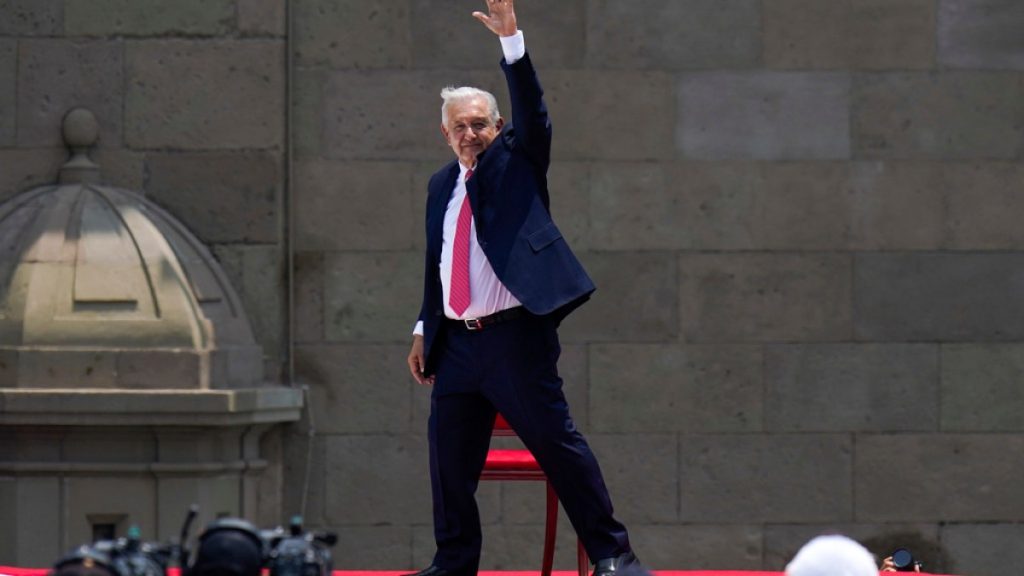As Andres Manuel Lopez Obrador, known as AMLO, approaches the end of his single six-year term as president of Mexico, debates are emerging over the legacy he will leave behind. Despite a controversial tenure, AMLO has maintained a high approval rating of over 60% throughout his presidency. His Morena Party has disrupted the political landscape in Mexico, leading to a landslide victory for his successor, President-elect Claudia Sheinbaum. While supporters credit AMLO for reducing poverty through policies like raising the minimum wage and implementing labor reforms, critics argue that he has eroded democratic oversight and failed to address security issues.
Lopez Obrador often refers to his time in office as the “fourth transformation” in Mexican history, akin to previous periods that fundamentally changed the country. Economic changes, such as reductions in poverty and inequality, have been highlighted as successes of his administration. AMLO doubled the minimum wage and implemented labor reforms to facilitate unionization efforts. However, some critics question the depth of these transformations, pointing out that social spending in Mexico remains low, and tax collection rates are insufficient. While AMLO has expanded welfare programs, the overall fiscal policy remains relatively restrained.
On the issue of crime and security, Lopez Obrador has emphasized stability rather than change. While murder rates have reduced slightly under his administration, Mexico continues to face high levels of violence and insecurity. Data shows that a significant portion of the population feels unsafe, with the vast majority of homicides remaining unsolved. Despite campaigning against the militarized approach to crime, AMLO has expanded the military’s role in security matters and granted it more power over public security operations, drawing criticism from some sectors.
The president’s ties with the military have strained relationships with advocates for Mexico’s disappeared population, with many accusing the government of failing to address accountability for human rights abuses. AMLO’s confrontational rhetoric has contributed to a sense of polarisation in Mexican politics, as critics argue his style of speech has hindered unity and dialogue. The final weeks of his presidency saw contentious reforms being passed, including a constitutional amendment to make judges stand for election, a move that critics fear will undermine the independence and integrity of the judiciary.
Despite criticism from detractors, AMLO and his supporters see the reforms as necessary steps towards combating entrenched interests and corruption in Mexico. The realignment of Mexican politics under his presidency, with the Morena Party securing supermajorities in Congress, is seen as a significant shift in the country’s political landscape. As AMLO prepares to hand over the presidency to Claudia Sheinbaum, both his supporters and critics anticipate that his vision for Mexico will continue to shape the nation’s future. The lasting legacy of his presidency could be the reshaping of Mexican politics and the ongoing debates around the reforms and changes implemented during his tenure.













